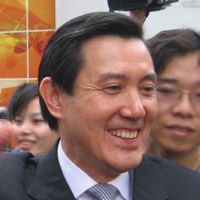Last weekend, tens of thousands of protesters rallied in Taiwan against President Ma Ying-jeou, who has become deeply unpopular after a series of scandals.
In the latest scandal, Ma, whose approval rating is now below 10 percent, used wiretap data from the Special Investigation Division to demand that Legislative Speaker Wang Jin-pyng step down. Wang, whom Ma has tried to strip of his membership in the ruling Chinese Nationalist party or Kuomintang (KMT), is a political rival of the president’s.
But the sources of Ma’s unpopularity run deeper. “Ongoing unrest in Taiwan has both political and economic factors, and will certainly impact the 2016 presidential elections,” Shihoko Goto, Northeast Asia associate in the Wilson Center’s Asia Program, said in an email interview. “Certainly, the momentum is in favor of the opposition DPP”—the Democratic Progressive Party—“but it is still a long time before voters can take to the polls.”

